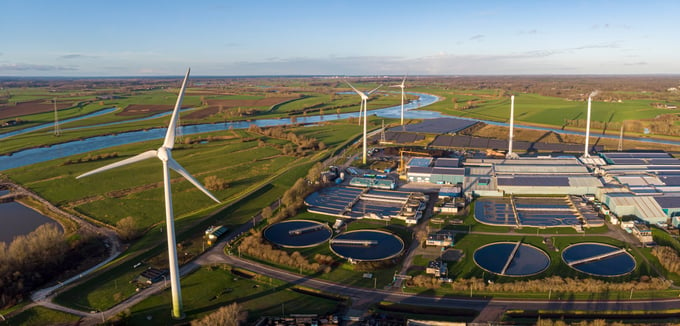It’s official: businesses are overestimating the benefits of green energy certificates. In June 2022, researchers for the journal Nature Climate Change carried out an analysis of how businesses use renewable energy certificates to support their science-based climate targets. Certificates such as Renewable Energy Guarantees of Origin (REGOs) are used to guarantee that a unit of energy is renewably sourced, but can be sold separately from the energy itself to retrospectively “green” the use of other energy.
The researchers’ conclusion? Using such certificates has led to “an inflated estimate of the effectiveness of mitigation efforts.”
The Science-Based Targets initiative (SBTi) currently allows businesses to use REGOs to claim 100% renewably generated electricity. They can then mark every MWh of energy covered by a REGO as having zero emissions. However, this “zero” label does not reflect the reality of how businesses power their sites.
When zero isn’t zero
Whether a business has on-site renewable assets or receives all its electricity through a standard supplier contract, the chances are that they will receive a proportion of their electricity through the same grid as everybody else. This means the same continually varying mix of dirty and clean energy sources. Labelling such energy as “zero emissions” has serious implications for the robustness of corporate climate strategies.
The SBTi is one of the most rigorous and respected voluntary schemes for emissions reduction. In June 2021, in line with the science, it increased the ambition of its minimum targets so that they now have to be in line with a global warming pathway of below 1.5°C.
Unfortunately, the Nature Climate Change research finds that the use of REGOs and other green certificates is undermining progress towards this goal. When researchers discounted the emissions reductions claimed through such certificates, the companies in the study were no longer on track for a 1.5°C pathway. Even worse, they were barely on track for the less ambitious 2°C pathway set out in the 2015 Paris Agreement.
The risks of miscalculation
The study covered 115 companies in a mix of sectors, to get a representative sample of those who have signed up to the SBTi. The attraction of the SBTi is that it offers a robust framework of external validation for businesses on their climate action. If the REGOs loophole allows such businesses to drastically overestimate their progress, the researchers warn that it “threatens to undermine the integrity of SBTs as a whole”.
The researchers have published a policy briefing alongside the paper, arguing that REGOs do nothing to encourage the creation of new renewable assets. (The UK government has also been exploring this question in its bid to reform the UK electricity market.)
Businesses sign up to the SBTi because they want to be seen as taking real action on the climate. Wrongly writing off Scope 2 emissions as zero could leave them open to serious reputational risk. As mandatory carbon reporting schemes become more stringent in their requirements, they may also face compliance issues. The more energy a business uses, the bigger the consequences could be.
ENTRNCE has just launched a free downloadable guide to help energy-intensive businesses cut through the greenwash to forge a genuine path to net zero. Navigating the energy crisis explains how you can really cut Scope 2 emissions as well as building energy resilience for the long term.




